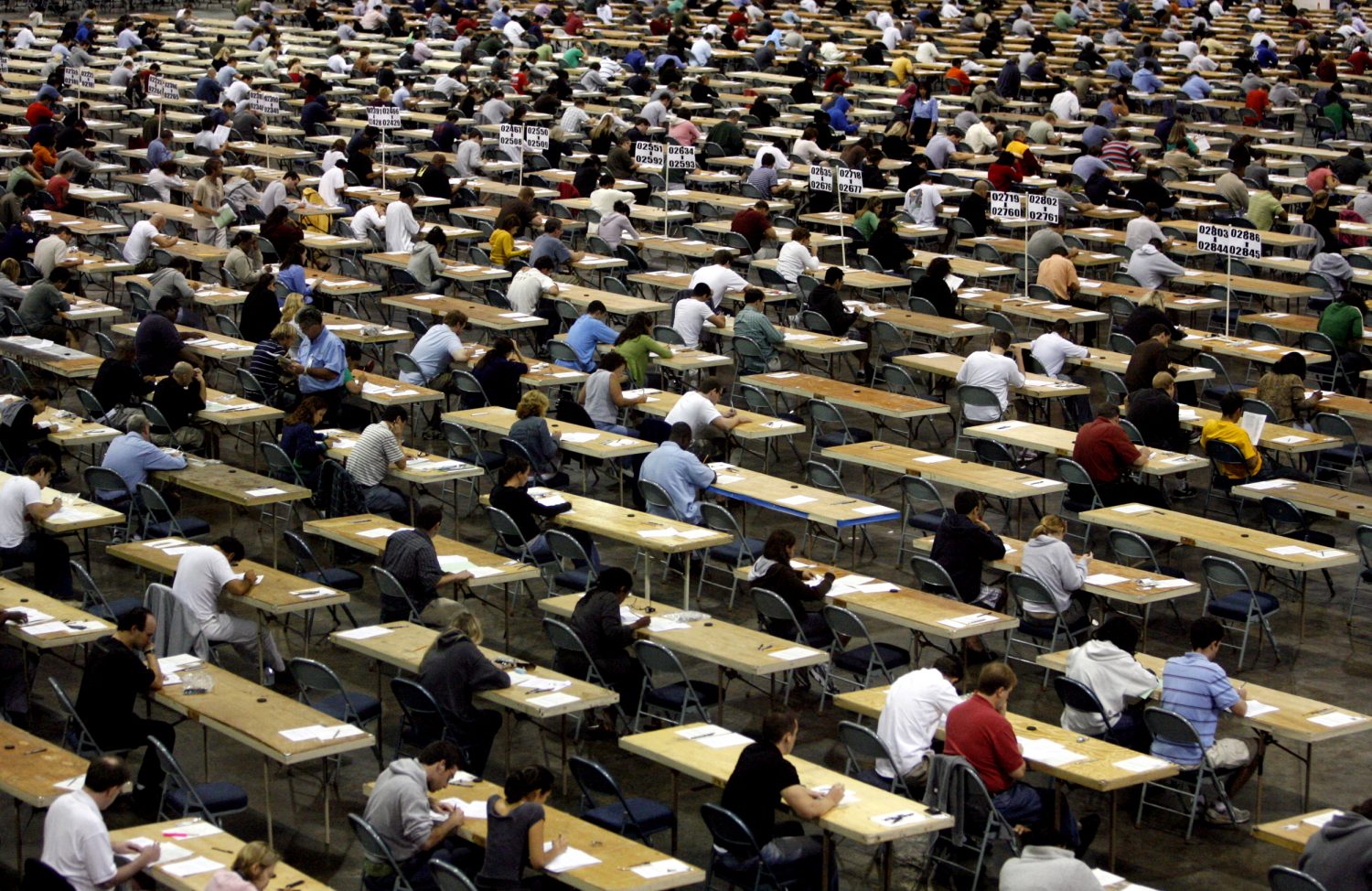How State Bar Exams Have Adapted to COVID

Every aspect of the legal field was radically changed by the coronavirus pandemic, and state bar exams were no exception. For decades, bar exams across the country were large, in-person events taking place in enclosed spaces for days at a time. For obvious reasons, there were health and safety risks that came with the old way of doing things once the pandemic arrived.
Like with other aspects of the legal profession, bar exams across the country have taken steps to adapt to the pandemic. These steps have included delayed or cancelled tests that have prevented students from entering the workforce. It has also led some states broaden their approach and harness new technology to allow the bar exam to continue in a modified format.
The Early Response: Cancellations and Delays
The early response from many jurisdictions was to cancel bar exams entirely or suspend them in hopes that in-person testing could resume in the latter part of 2020. After substantial debate, the American Bar Association House of Delegates voted to urge states to halt in-person bar examinations until public health authorities could ensure administering the exam would be safe for proctors, applications, and other participants.
The changes to the traditional July exam varied wildly from one jurisdiction to another, impact the more than 45,000 recent law school graduates in different ways. In July, many states—23 in total—forged ahead with in-person exams despite of the pandemic. Some of these states, including Alabama, not only held the standard July bar exam as scheduled but also hosted an alternate exam in September.
Multiple states cancelled their July bar exam or pushed it back by several months. For example, New York completely cancelled the in-person bar exam they scheduled for September of 2020. The state rescheduled the exam for October. California followed suit, initially cancelling their September exam in favor of a remote exam in October. Most states that opted for a remote exam in 2020 did so for their February 2021 exam as well.
The Adoption of Online Bar Examinations
A number of states like New York that delayed their July bar exam also allowed these tests to take place online. For the February 2021 test, a majority of states opted to move their exam online.
Early reports regarding remote testing were largely positive, but there many accounts of software glitches along the way. The remote tests were administered through ExamSoft, the same software provider that most states use for their in-person testing. The security measures involved in remote testing were robust. The software used facial recognition software to verify the identify of the test-taker and prevent cheating. Representative of ExamSoft pushed back, claiming there were only a small number of technical issues that primarily resulted from users relying on computers that did not meet the minimum system requirements.
Limited Practice Opportunities for New Graduates
One of the ways that certain states have allowed new graduates to get started with their careers is through allowing them to engage in limited legal practice under the watchful eye of licensed attorneys. These supervised practice options are not offered in every state, but some jurisdictions have made use of them. In general, this option allows recent graduates to perform limited legal work as long as it is in conjunction with a licensed attorney.
Other states have adopted diploma privileges that essentially waive the need for certain graduates to take the bar exam at all. These states—including Oregon—do require attorneys admitted in this way to participate in mentoring programs.
Some Graduates Were Left Behind
In the end, the delays and online testing options worked out for some recent graduates. New York, who delayed their July exam to October and administered it online, saw their pass rate climb to 84%. That is a substantial jump from the 65% pass rate from the year prior.
Not every recent graduate benefited. In fact, a large number of eligible graduates simply didn’t take the test at all. According to Bloomberg Tax, approximately 8,000 graduates skipped the July bar across the country. While roughly 38,000 people sat for the July 2020 bar exam, that is a drop from the 46,000 individuals that took the test in July 2019. The numbers are striking, given that more JDs were conferred by law schools in 2020 compared to 2019.
It is impossible to know the motivations of every graduate that opted not to pursue a license in July 2020. After all, some states have allowed graduates supervised practice options. It is likely that some students have passed on taking the bar and gone straight into practicing under the supervision of a licensed attorney. Undoubtedly, some of those 8.000 students would have sat for the bar if the pandemic was not an issue.
The Impact COVID Had on Future Bar Exams
The coronavirus is not the only thing that has altered the face of bar examinations going forward. The response to the pandemic in many states has also potentially changed the shape of bar examinations in years to come.
It is unlikely COVID will lead to a complete phase out of the bar exam. That said, there is little doubt that some of the changes that occurred during the pandemic could have a lasting impact. The chances are good that bar exams in the near future will look nothing like those that occurred just a few years ago.
In fact, the process of reshaping the bar exam has been in the works for years. In January, the National Conference of Bar Examiners (NCBE) voted to accept a series of new recommendations designed to improve exam accessibility, streamline the testing process, and prove test-takers with resources that can help them prepare for the exam. It remains to be seen how the lessons learned from the pandemic will shape future changes to the exam.
Other states might consider phasing out the exam, however. Prior to the pandemic, certain jurisdictions had considered the possibility of allowing for diploma privileges in place of a formal exam.
About the Author
Gerald Miller is the principal attorney in Gerald Miller, P.A., a Minnesota DWI defense firm. He has over thirty-five years of experience in this area. Gerald has been recognized repeatedly over the years for his contributions to DWI defense and his successful representation of defendants.










